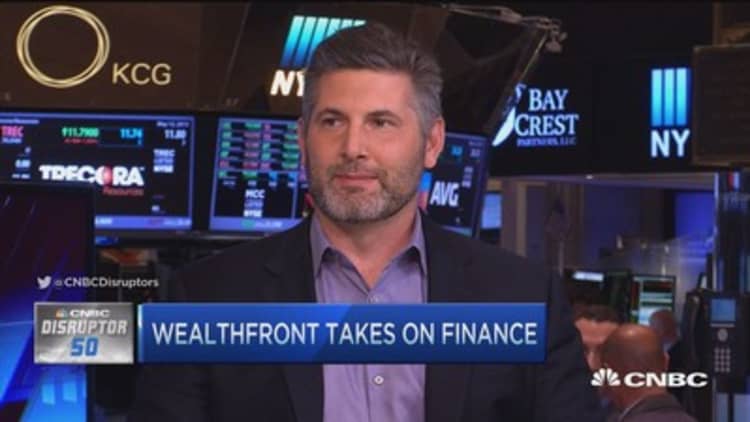
When it comes to investing, Wealthfront firmly believes computers can help individuals get better returns.
The automated online investment services company, No. 34 on 2015 CNBC Disruptor 50 list, launched in 2011 to take on traditional financial services and investing firms. It now oversees $2.25 billion in assets.
"The real reason that individual investors trail the professionals is because they spend too much on fees and they make behavioral errors, trading emotionally," CEO Adam Nash said Tuesday in an interview with "Closing Bell."
"These are the two things we think computers can really help with."
Read More Meet the 2015 CNBC Disruptor 50 companies
Wealthfront is targeting tech-savvy millennials. In fact, 60 percent of its clients are under 35, and 90 percent are under 50.
"What we're discovering is that not only do [millennials] prefer a low-cost, passive solution but they really prefer automation. They grew up with technology and they believe that in their lives they want to focus on their careers, on their friends, on their families," he said.
Because trading is done by software, he said the company can avoid the high minimums and high fees associated with traditional wealth management.
Younger investors, who have been through two market crashes, are also more cynical about their ability to beat the market or protect themselves through a downturn, Nash noted.
Read More10 gutsy startups creating controversial headlines
The firm covers 11 different asset classes, and Nash said it tries to find the cheapest and best-performing funds for each asset class.
"The personalization comes into play by looking at your financial situation, figuring out what risk you're comfortable taking and finding the right portfolio for you."
Meanwhile, most of the trading that is done is "simple things," like rebalancing portfolios.
"I think active managers try to apply judgment to the process. Rebalancing a portfolio, the research shows, should be actually mathematical," Nash said.







